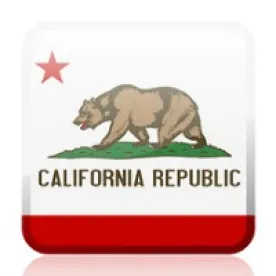California’s Private Attorneys General Act of 2004 (“PAGA”) allows employees to act as an “agent” of the State of California and recover civil penalties for violations of the Labor Code through a civil action filed on behalf of themselves and other current or former employees. In Viking River Cruises, Inc. v. Moriana, the U.S. Supreme Court held that the Federal Arbitration Act partially preempted a California rule prohibiting employers from requiring their employees to enter into pre-dispute arbitration agreements that contractually waived the right to assert “representative” claims under PAGA. Viking River held that while California could validly prohibit pre-dispute arbitration agreements effecting “wholesale waivers” of PAGA claims, the Federal Arbitration Act preempts any rule against requiring employees to arbitrate their “individual” PAGA claims.
Viking River also held that an employee subject to a valid agreement to arbitrate their individual PAGA claims could not maintain “non-individual” PAGA claims based on alleged Labor Code violations against other employees. In concurring opinions, however, several Justices indicated that the standing question presented a question of state law over which California courts would have the last word.
On March 24, 2023, the California Court of Appeal for the Second Appellate District agreed with the concurring opinions in Viking River and gave itsown answer to the PAGA standing question in Gregg v. Uber Technologies, Inc.
The Decision in Gregg v. Uber Technologies, Inc.
Gregg involved an Uber driver who claimed that Uber willfully misclassified drivers as independent contractors, leading to the violation of numerous Labor Code provisions against him and other drivers. The “Technology Services Agreement” the plaintiff signed as condition of Uber’s smartphone application to be an Uber driver included an arbitration agreement. With respect to PAGA, the arbitration agreement:
-
prohibited non-individual PAGA claims against Uber in any court or arbitration forum;
-
required drivers to resolve their PAGA claims against Uber “on an individual basis only” through binding arbitration; and
-
stated that the outcome of an individual PAGA arbitration could not be used to “resolve whether other individuals have been aggrieved or subject to any violations of law.”
Uber asked the Court of Appeal to both (a) compel arbitration of the plaintiff’s individual PAGA claims under the agreement and (b) dismiss the non-individual PAGA claims the plaintiff sought to bring on behalf of other drivers. Based on Viking River, Uber argued that the agreement to arbitrate the “individual” PAGA claims deprived the plaintiff of standing to bring PAGA claims on behalf of other drivers.
The Court of Appeal agreed that the plaintiff had signed an arbitration agreement, that under Viking River’s analysis of the Federal Arbitration Act, required him to arbitrate his individual PAGA claims. However, the Court of Appeal concluded that PAGA’s standing requirements presented a question of state law as to which Viking River was not binding.
Analyzing the PAGA standing question for itself, the Court of Appeal disagreed with Viking River’s analysis and held that the Gregg plaintiff maintained standing to pursue non-individual PAGA claims in court notwithstanding his agreement to arbitrate his individual PAGA claims. The Court concluded the arbitration agreement merely required him to “litigate” the non-individual “portion” of his PAGA claim in an “alternative forum.”
Because of this, the Court of Appeal concluded that portions of the arbitration agreement purporting to require the Gregg plaintiff to “waive” his right to invoke “representative” standing to recover penalties based on violations against other employees effected were invalid under California law. The Court severed those provisions from the arbitration agreement.
Takeaways
Gregg marks the second California Court of Appeal decision to disagree with Viking River’s interpretation of PAGA’s standing requirements. As we shared in a previous post, California’s Fifth Appellate District’s recent decision in Galarsa v. Dolgen California, LLC also held that an agreement to arbitrate an employee’s individual PAGA claims does not deprive the employee of standing to later pursue representative PAGA claims.
Both Gregg and Galarsa are published decisions that are binding on California trial courts. As a result, when a PAGA plaintiff has an arbitration agreement that requires arbitration of their individual PAGA claim, California trial courts will likely not dismiss any representative PAGA claims that are also alleged, as Viking River interpreted California law to require. Instead, trial courts will most likely stay the representative claims pending the individual arbitration.
However, Gregg and Galarsa will not be the final word on whether an employee who has been compelled to arbitrate their individual claims under PAGA maintains statutory standing to pursue representative PAGA claims based on alleged Labor Code violations against other employees. The California Supreme Court has granted review in Adolph v. Uber Technologies to answer the very same question. Adolph is fully briefed, but oral argument has not yet occurred.
Pending Adolph, employers should be careful to craft arbitration agreements that comply with the latest decisions on the interplay between PAGA and the Federal Arbitration Act, while also allowing for the possibility that Adolph might agree with Viking River’s analysis of this issue. Because of the complex and constantly evolving case law surrounding the arbitration of PAGA claims—and the enforcement of arbitration agreements in general—employers are strongly encouraged to regularly review their arbitration agreements with legal counsel.



 />i
/>i

